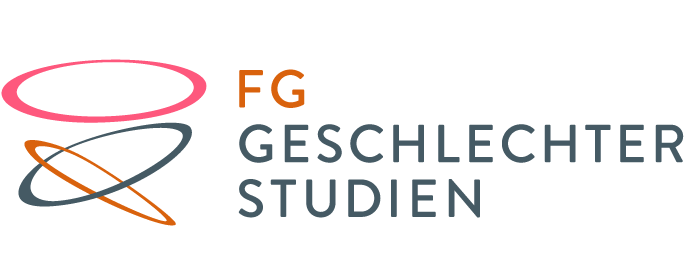CALL FOR PAPERS (PDF)
Renegotiating Minoritarian In_Visibilities
Interdisciplinary Conference, November 12-14, 2019
In recent years, the relation between visibility and invisibility of minoritarian subject positions has been renegotiated and led to a preliminary re-assessment of the political potential of the concept of visibility. Thereby, invisibility or imperceptibilityare subject to significant revaluation. Especially from activist, cultural and political points of view and in the contexts of queer or non-racist politics of migration, attempts have been made to question the topos of visibility and its positive connotations. However, the debate about a possible end of the critique of representation often disregards that politics of becoming imperceptible or invisible can indeed develop new modes of presentation and perception and therefore cannot unfold beyond representation.
In an attempt to distance the renegotiation of minoritarian in_visibilities from post-representational arguments, this conference approaches visibility and invisibility as two mutually entangled and interdependent concepts. By using the underscore in the orthography (in_visibility), we want to highlight two approaches to these terms: On the one hand, the underscore indicates the processual continuum between the two concepts. On the other hand, we want to approach the conceptual gap between visibility and invisibility as a discursive space for the negotiation of ambiguity, vagueness and indeterminacy. The use of the term „minoritarian“, moreover, points towards context-specific processes and situations of structural discrimination due to categories of difference, thus, it highlights the process of becoming-minoritarian. However, without reducing subjects to this position, we ask how a seemingly minoritarian status can be transformed into political agency. Accordingly, our research interests focus on strategies of becoming in_visibile from a minoritarian point of view. The conference will investigate how minoritarian strategies in art and visual culture can undermine hegemonic regimes of representation and challenge the dominant patterns of visibility, assimilation and intelligibility. Recent political developments, be they the worldwide growth of repressive regimes or the neoliberal ideology of the so-called ‚Global North‘, together with their accentuation of representation and enforced identity politics, underline the topicality and urgency of this approach.
Following a power-analytical as well as a critical stance toward domination and ideology, the conference will explore the connections between strategies of becoming in_visible in art and visual culture and their potential for developing individual or collective political agencies. The relations between implicit (closed, camouflaged, invisible, etc.) and explicit (blunt, open, visible, etc.) strategies of becoming in_visible and their specific, context-dependent potential for political agency shall be investigated in detailed analyses of case studies.
The societal relevance of this conference is grounded in its investigation of aesthetic strategies that counteract processes of discrimination and stereotyping due to gender, sexuality, race, ethnicity, age and further categories of difference. Considering close connections between academia, art critique/practice and activism, we want to examine the social productivity of images and develop new conceptual approaches for the comprehension of politics and emancipation in art and visual culture.
The conference will deal with the following questions and topics (amongst others):
- How do strategies of in_visibility in art and visual culture produce and reinforce political agency for minoritarian subject positions?
- Who is able to utilize in_visibility for political agency? Whom is this strategy denied?
- How can minoritarian subjects become visible in art and visual culture but avoid subsequent re-discrimination and stereotyping due to their recently acquired visibility?
- To what extent is it possible to evade intelligible and assimilationist patterns of comprehensibility by using minoritarian politics of in_visibility?
- Who is in charge of the global circulation and the directions, speed and properties of the dissemination and marketing of minoritarian forms of in_visibility in art and visual culture?
- How are forms of in_visibility modified by processes of imaging, image formation and mediality?
- How can we shed light on blind spots; in particular, how can we become aware of ‚our‘ ignorance of forms of invisibilities?
- Is it possible to differentiate various forms and functions of in_visibility from a historical perspective? How and why do these forms change?
- Analyses of different visual-aesthetic strategies and case studies of in_visibility may refer to the following theories and concepts, without being limited to them: demoulding (= EntFormen) (Fahim Amir and Johanna Schaffer 2012), Mimicry and third space (Homi K. Bhabha (1994), un-disambiguation (= VerUneindeutigung) (Antke Engel 2002), opacity (Glissant 1990), aesthetical ambiguity (Verena Krieger 2010), space-off (Teresa de Lauretis 1999); abstract drag (Renate Lorenz 2014).
Conference format:
Connecting theory and practice, the conference will provide spaces for various artistic, scholarly and political forms of exchange. Therefore, we ask for submissions for various forms of contribution (papers for panel discussions, workshops and/or other experimental formats). Seeking trans- and interdisciplinary exchange, we invite proposals from the disciplines of cultural studies, visual communication, art history and theory, art education as well as art practice and aesthetic-political activism, photojournalism, cultural education, history and media studies (amongst others).
Abstracts for contributions should not exceed 400 words and should be accompanied by a brief curriculum vitae of maximum three pages.
Panel presentations are scheduled for 20 minutes and subsequent discussion. Workshops and other experimental formats will take 90 minutes.
A subsequent publication of the contributions is intended.
The three-day conference will take place on November 12–14, 2019 at the Graduate Centre for the Study of Culture (GCSC) of the Justus-Liebig-University Giessen, Germany. The conference is organized by the Research Area „Visual and Material Culture Studies“ of the GCSC. If you need childcare for the duration of or part of the conference, kindly let us know well in advance.
Please send your proposals to in-visibility@gcsc.uni-giessen.de
Deadline for submission is April 10, 2019.
For questions, please contact in-visibility@gcsc.uni-giessen.de
Organisation:
- Oliver Klaassen (Queer Art Studies, PhD student at the GCSC; Lecturer at various German universities)
- Jana Tiborra (Art Pedagogy, Research Assistant at the Institute for Art Pedagogy, JLU; PhD student at the GCSC)
- Katharina Wolf (Contemporary History, PhD student and Research Assistant at the GCSC)
- Cathérine Ludwig-Ockenfels (Early Modern History, PhD student at the GCSC)



